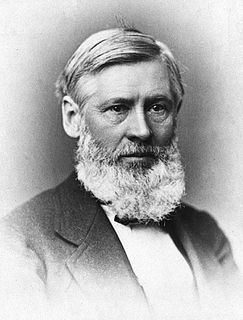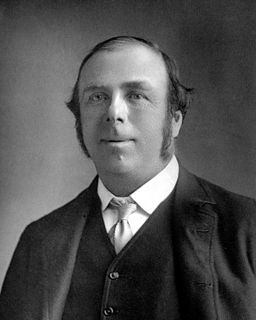A Quote by James Hutton
To a naturalist nothing is indifferent; the humble moss that creeps upon the stone is equally interesting as the lofty pine which so beautifully adorns the valley or the mountain: but to a naturalist who is reading in the face of the rocks the annals of a former world, the mossy covering which obstructs his view, and renders indistinguishable the different species of stone, is no less than a serious subject of regret.
Related Quotes
Many able Gardeners and Husbandmen are yet Ignorant of the Reason of their Calling; as most Artificers are of the Reason of their own Rules that govern their excellent Workmanship. But a Naturalist and Mechanick of this sort is Master of the Reason of both, and might be of the Practice too, if his Industry kept pace with his Speculation; which were every commendable; and without which he cannot be said to be a complete Naturalist or Mechanick.
Every thing thinks, but according to its complexity. If this is so, then stones also think...and this stone thinks only I stone, I stone, I stone. But perhaps it cannot even say I. It thinks: Stone, stone, stone... God enjoys being All, as this stone enjoys being almost nothing, but since it knows no other way of being, it is pleased with its own way, eternally satisfied with itself.
In every bio-region, one of the most urgent tasks is to rebuild the community of naturalists - so radically depleted in recent years, as young people have spent less time in nature, and higher education has placed less value on such disciplines as zoology……The times are right for the return of the amateur, twenty-first-century, citizen naturalist. To be a citizen naturalist is to take personal action, to both protect and participate in nature.
Nor has science sufficient humanity, so long as the naturalist overlooks the wonderful congruity which subsists between man and the world; of which he is lord, not because he is the most subtile inhabitant, but because he is its head and heart, and finds something of himself in every great and small thing, in every mountain stratum, in every new law of color, fact of astronomy, or atmospheric influence which observation or analysis lay open.
The difference between the Japanese and the American is summed up in their opposite reactions to the proverb (popular in both nations), "A rolling stone gathers no moss." Epidemiologist S. Leonard Syme observes that to the Japanese, moss is exquisite and valued; a stone is enhanced by moss; hence a person who keeps moving and changing never acquires the beauty and benefits of stability. To Americans, the proverb is an admonition to keep rolling, to keep from being covered with clinging attachments.
The ordinary naturalist is not sufficiently aware that when dogmatizing on what species are, he is grappling with the whole question of the organic world & its connection with the time past & with Man; that it involves the question of Man & his relation to the brutes, of instinct, intelligence & reason, of Creation, transmutation & progressive improvement or development. Each set of geological questions & of ethnological & zool. & botan. are parts of the great problem which is always assuming a new aspect.




































